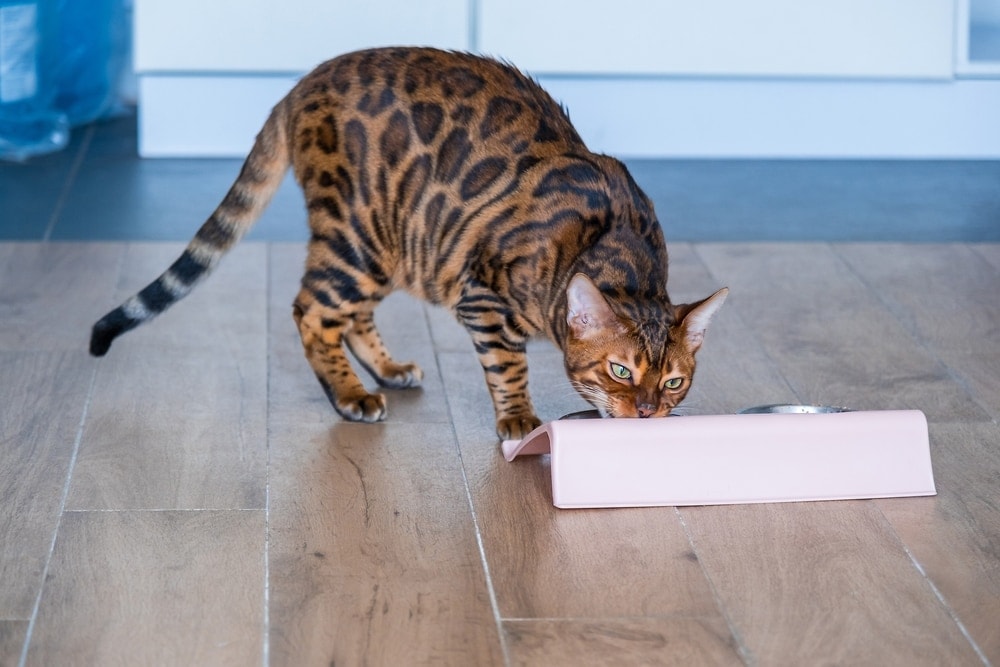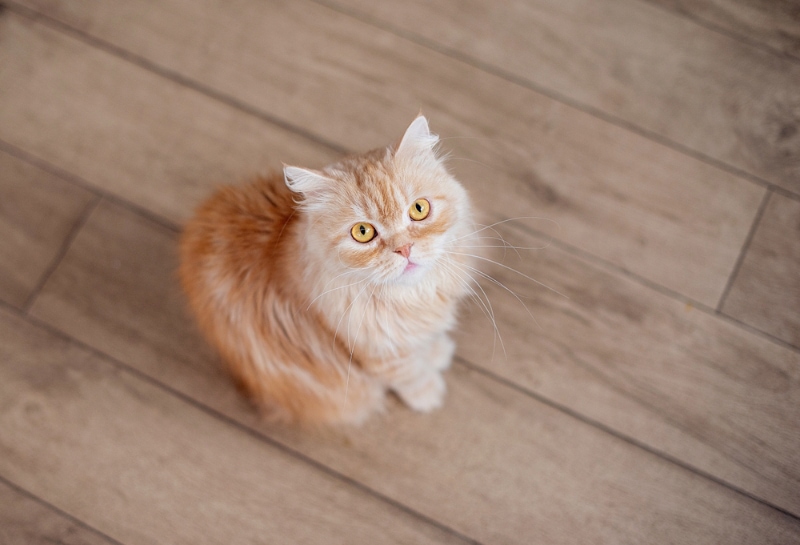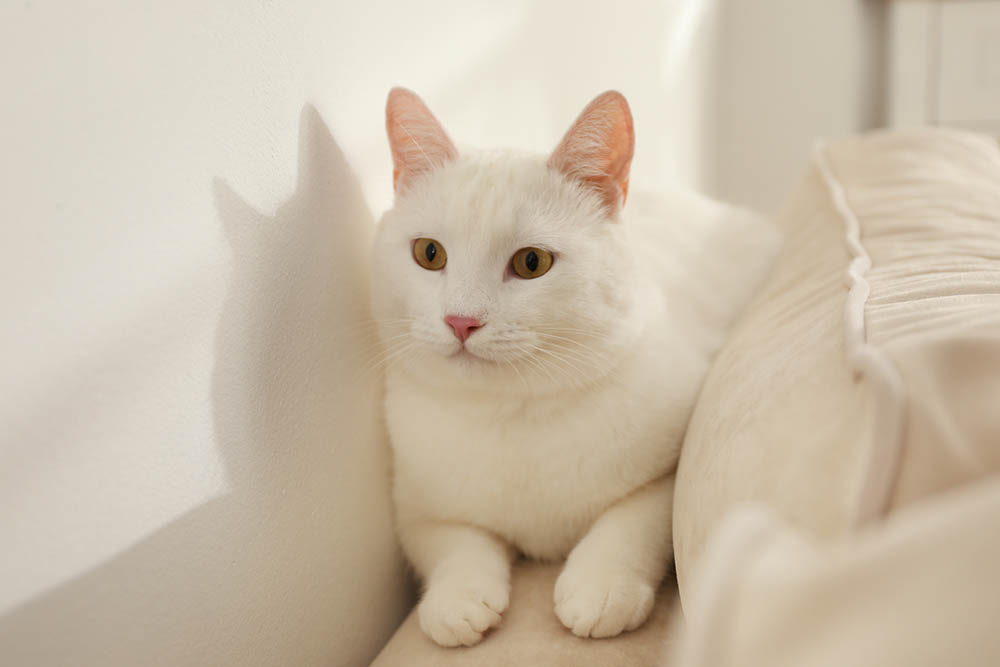Can Cats Eat Ramen Noodles? What You Need to Know!
Updated on
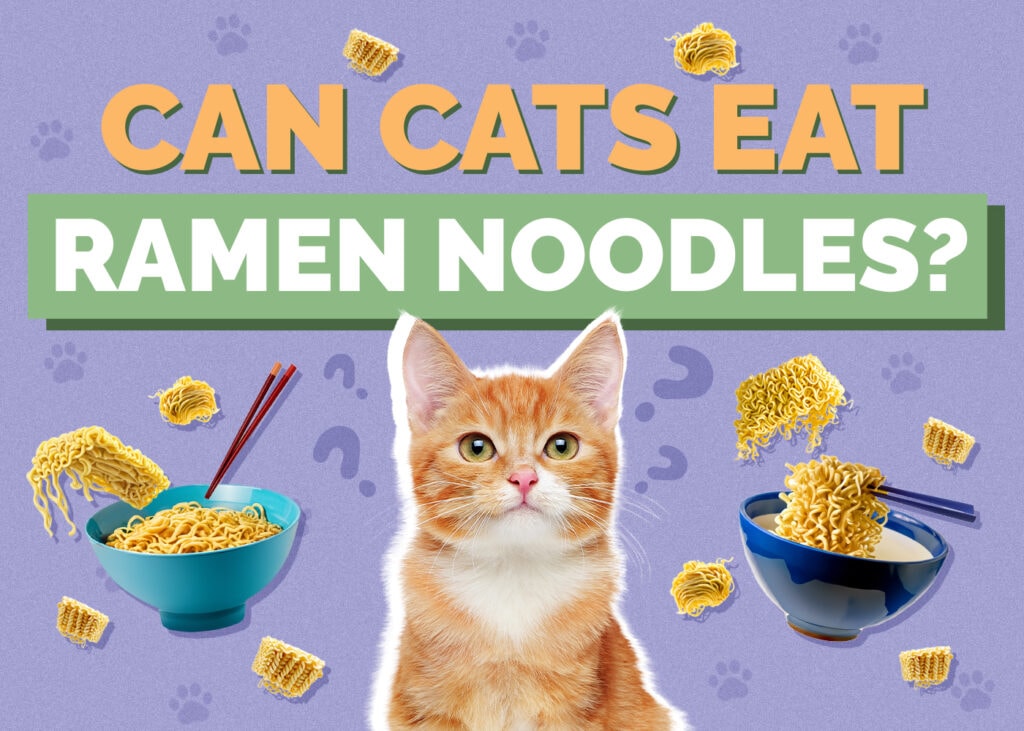
Cats should not eat ramen noodles for various reasons. Ramen noodles contain high levels of sodium and fat and can cause serious health problems for your cat when ingested in large amounts. High-quality cat food is all your kitty needs to get essential nutrients, and it’s best to avoid serving them table scraps or cuisine made for humans.
Why Sodium Is Dangerous for Cats
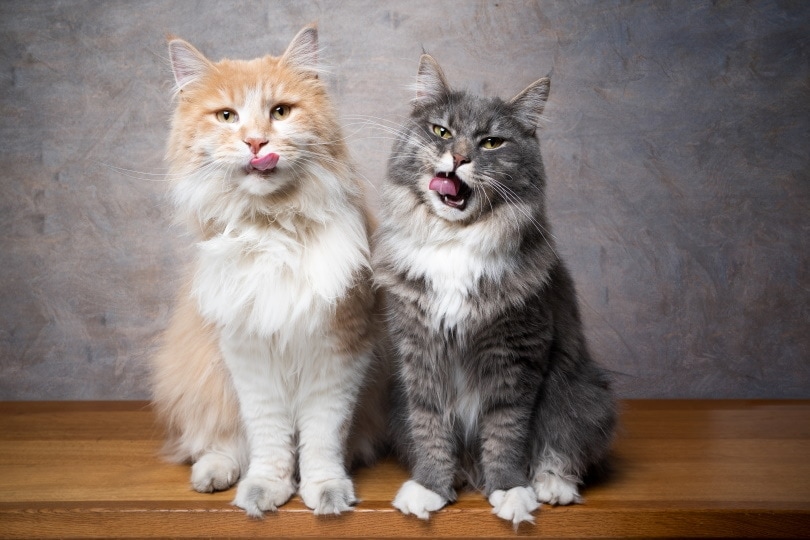
Sodium intake has a direct correlation to high blood pressure. There is a system in place in mammals to regulate salt concentrations and blood pressure called the renin-angiotensin system.
Extra salt intake causes water retention in the body, leading to swelling of the tissues, called edema. This excess fluid makes it harder for your cat’s heart to pump against the pressure buildup in their arteries. This leads to increased blood pressure, or hypertension, which causes enlargement of the heart muscle and, eventually, congestive heart failure.
Since cats have a relatively low body mass, they are more sensitive to the effects of high blood pressure than larger animals. They can’t compensate as well and can have more serious complications.
Can Cats Die From Eating Ramen Noodles?
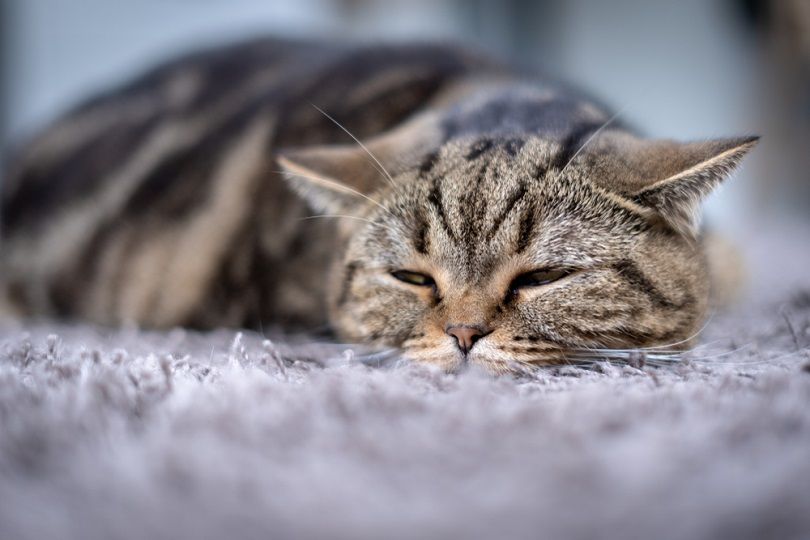
Yes, your cat can die from eating ramen noodles. They are not cat food and should never be fed to cats as part of their diet. The high sodium content could cause dangerous changes to your cat’s blood pressure, and the fat content in ramen noodles can harm them, too. While a small, high-fat meal probably won’t hurt your cat, they can become sick from eating high-fat foods too often.
Cats, like people, need a certain amount of fat in their diet to stay healthy. Fats are a concentrated energy source; they help your cat’s cells to function, control inflammation, and regulate hormones. Healthy fats can also protect your cat by providing a buffer against viral and bacterial infections and improving their immune function by absorbing necessary vitamins and minerals.
But what happens if your cat eats too much fat? Excess amounts of fat can cause digestive upset for your cat, leading to vomiting and diarrhea. In addition, excessive fat in your cat’s diet harms their health, leaving them susceptible to heart disease, diabetes, arthritis, cancer, and obesity.
Can Cats Eat Homemade Noodles?
You can feed homemade noodles if they are prepared with low-sodium ingredients and without store-bought sauce. If you want to prepare homemade noodles for your cat, make sure you are feeding freshly prepared ingredients. However, noodles aren’t an ideal food to feed cats in the first place because they are carbohydrates.
Cats are obligatory carnivores and don’t require carbohydrates to stay healthy. Multi-grain noodles can be fed as occasional treats, but in most cases, all you are doing is adding unnecessary calories to your cat’s diet.
Cats and Carbohydrates
Carbohydrates aren’t considered essential nutrients in a cat’s diet. They are primarily used as fillers in cat food because they provide a highly digestible, ready-to-use energy source.
When carbohydrates are digested by your cat’s body, they are broken down into glucose (sugar), which is the preferred energy source for cells. Carbohydrate intake enables proteins to be reserved for building and maintaining body tissue instead of being used for energy production.
Carbohydrates are added for the same reason in commercial cat food. They are cheaper than protein and provide added energy for your cat without making the cost of food too high. Using a mix of proteins and carbohydrates as energy sources is more practical and economical.
Carbohydrates also allow more flexibility to create recipes with differing nutrient values. This is important because some animals require less fat and protein in their diet, while others require different levels of minerals due to health conditions. All cat foods contain varying balances of carbohydrates, protein, and fat.
Fiber is a unique form of carbohydrate that cats can’t digest. It still has benefits, including weight management and control of blood glucose levels. But diets high in carbohydrates don’t provide your cat with enough nutrition to keep them healthy. Excess carbohydrates can lead to obesity and diabetes.
Now that you know what you can safely feed your cat, it’s just as important to find a bowl that supports their health and well-being. With whisker-friendly bowls and a wide tray to catch any spills, our Hepper NomNom Cat Bowl is our favorite option.
Summary
Cats should not eat ramen noodles. Processed foods are high in sodium and fat, which can be harmful to your cat’s health. Noodles are also high in carbohydrates. While low levels of carbohydrates can be beneficial, high volumes of carbohydrates can lead to obesity and diabetes in cats. Cats are obligate carnivores that require meat protein as the primary ingredient in their diet.
Related Reads:
Featured Image Credit: NaoYuasa, Pixabay



